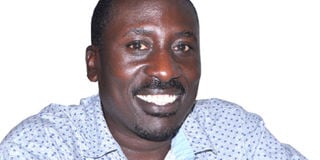Opposition’s Andrew Mwenda Complex

What you need to know:
- Their shared vision is unblinking in its poetic gaze into the distance where they hope Uganda to go.
- To him, Bobi and Besigye are the bogeymen who, as the British described Jomo Kenyatta, shall lead Uganda to “darkness and death.”
Do Ugandan Opposition leaders suffer from an Andrew Mwenda complex?
Back in the 1990s and early 2000s, Mr Andrew Mwenda was a heroic figure to all Ugandan elites who wanted history recorded at President Museveni’s expense.
His attacks on the establishment were so inspired that he fought the government to an intellectual standstill as Uganda’s Cabinet reportedly sought solutions on the “Andrew Mwenda question.”
Back then, and a little now, Mwenda struck me as someone gripped by the fervour of his own self-righteousness. As a corollary, he was an ardent believer in social justice as defined by his worldview.
However, yes, there’s always a ‘however’, there was a cloud to the Andrew Mwenda silver lining.
To him, presidents such as Rwanda’s Paul Kagame were the only ‘good guys’ in the geo-strategic game of global power.
Kagame’s critics observed that Mwenda reserved a remorseless distaste for President Museveni while carrying a long spoon to dine with the devil. In short, Mwenda was a paradox.
So it was clear to me that his mile-a-minute mouth and nose for trouble would one day land him in hot soup: splash!
While yesteryear he promised to “finish” President Museveni, today he seems to be in bed with the same Museveni!
Their shared vision is unblinking in its poetic gaze into the distance where they hope Uganda to go.
As a consequence of this (or possibly coincidental to this), Mwenda has turned his smiling trigger towards Bobi Wine and Kizza Besigye.
To him, Bobi and Besigye are the bogeymen who, as the British described Jomo Kenyatta, shall lead Uganda to “darkness and death.”
The way Mwenda hits at these two reminds me of my favourite cartoon character, Yosemite Sam.
When riding his camel, he suddenly decides he wants to stop but the camel keeps going. So he hits its head twice for not stopping; saying “When I say ‘whoa’, I mean whoa!” at which time, the camel’s hump shrinks and a lump of similar size rises from the camel’s head.
By switching targets from Museveni to Museveni’s opponents, Mwenda has, inadvertently, invented the techniques of political warfare that have shaped the “revolutionary” struggles throughout the Opposition’s ranks.
All Opposition leaders are full-throated in their criticism of Museveni, but they are also ready to turn their guns on each other while finding excuses as to why they cannot unite.
“We cannot form a coalition at this time if it is to be done, it must be after the elections and it must be there for regime change but not power-sharing,” said the Opposition Forum for Democratic Change (FDC) party president Patrick Oboi Amuriat in September.
When his words are shorn of context, they come across as reasonable.
However, these words take on an ominous character in the context where Opposition leaders continually cross swords: Mao versus Besigye, Besigye versus Muntu, Bobi versus Besigye, Mao versus Lukwago etc.
It seems Opposition leaders keep a finger in the wind so as to improve their wriggle room when it comes to inevitably switching their loyalties.
Like Mwenda, this makes them paradoxical.
For they insist on using any means necessary to remove Museveni, only to backtrack when those means do not jibe with their means towards power.
This wishy-washiness ensures that today they are friends of democracy, but tomorrow democracy will be ignored once it’s no longer in their interest to be democratic.
It’s like they read this fair-weather engagement strategy right out of the Andrew Mwenda playbook.
I just hope their Andrew Mwenda complex doesn’t leave our Opposition or government-in-waiting as unpopular tomorrow as Andrew Mwenda is today.
Mr Matogo is the managing editor Fasihi Magazine.
[email protected]




